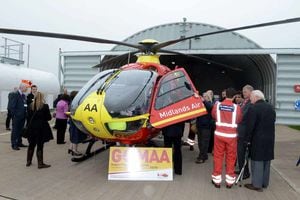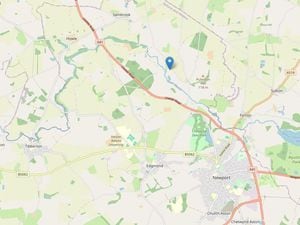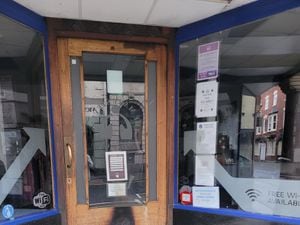Sahara dust blamed for grounding Midlands Air Ambulance
Dust from the Sahara Desert caused a new Midlands Air Ambulance to be grounded – as paramedics revealed a surge in calls from people suffering breathing difficulties.

West Midlands Ambulance Service has seen a 'noticeable' spike in calls linked to breathing problems and chest pains over the past three days.
Air pollution levels have reached dangerous highs in some parts of the UK, with doctors warning people with breathing problems to stay indoors.
The problem has been partly blamed on dust blowing in from the Sahara Desert.
A spokesman for the ambulance service today said on Monday, Tuesday and Wednesday of this week there were more than 500 calls reporting breathing or chest problems each day. This compares to a total of 460 on Friday, Saturday and Sunday.
West Midlands Ambulance Service communications officer Steve Parry said: "Calls to breathing problems and chest pain have increased predominantly in Staffordshire and Birmingham.
"Breathing problems normally account for 11 per cent of our total 999 calls, but this has increased to 12 per cent. Similarly, 10.5 per cent of our total emergency calls are to chest pain - but a 2.5 per cent increase this week has resulted in this accounting to 13 per cent of our total 999 calls."
And the launch of the Midlands Air Ambulance's new £4.5m helicopter was marred after the aircraft had to be grounded because of the dust.
The aircraft was not able to head into the skies during the launch at RAF Cosford due to poor visibility yesterday.
Experts have warned pollution levels look set to rocket over the next few years. But the smog is expected to start lifting today and could be cleared by tomorrow.
Medical director for West Midlands Ambulance Service, Dr Andrew Carson, said such conditions can 'pose real difficulties' for sufferers of emphysema and asthma.
"Air pollution and smog can make breathing difficult even for healthy individuals. That's why we suggest people with respiratory illnesses should remain indoors as much as possible," said Dr Carson.
"A prolonged period of these conditions poses real difficulties to those patients with emphysema, asthma and long term breathing problems.
"It is vital that we get to patients needing our help as quickly as possible and therefore ask the public to assist us by only calling 999 in life threatening situations. For less urgent health advice, please call 111."





